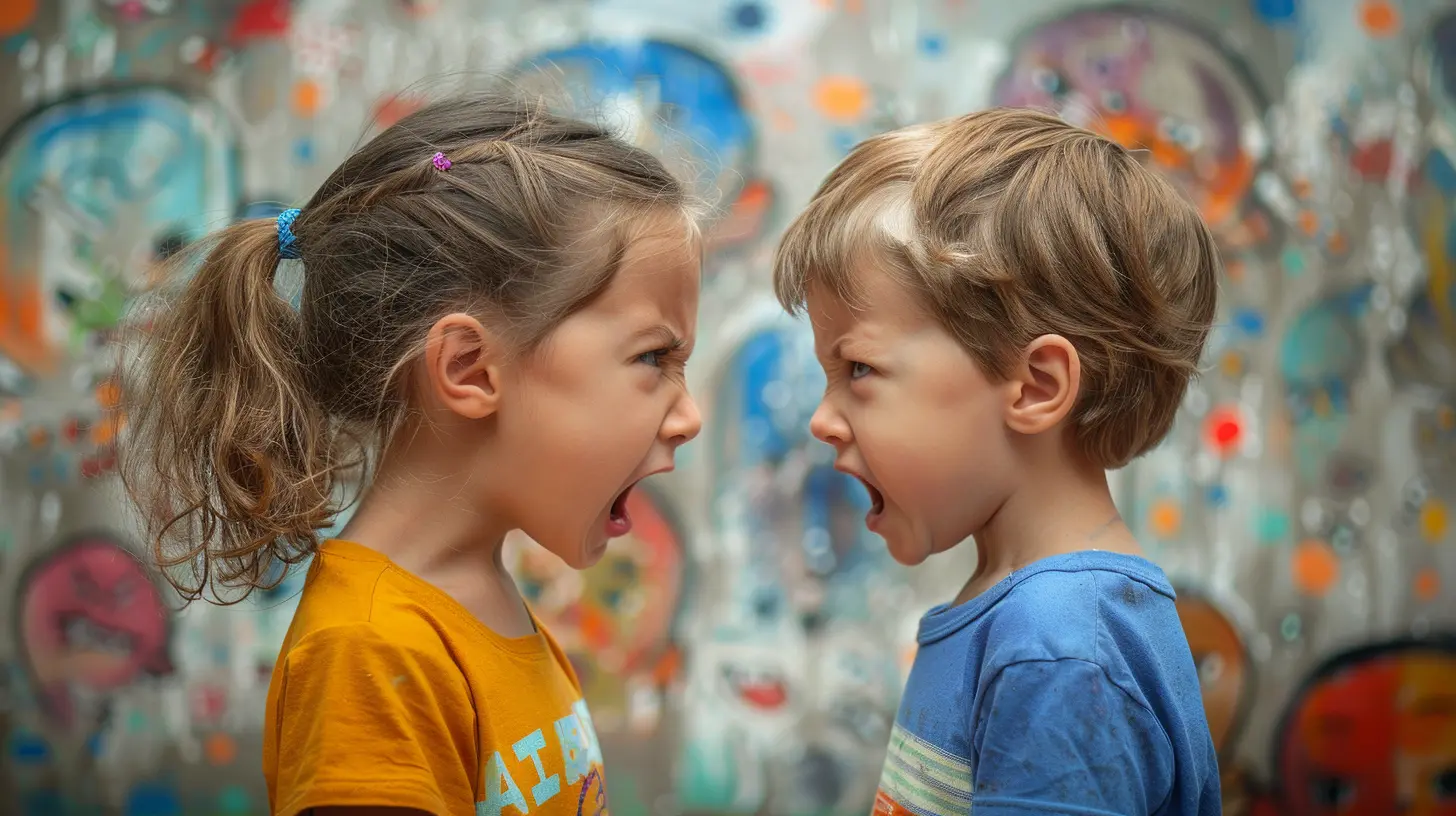Do’s and Don’ts When Your Child Is Having a Meltdown
22 June 2025
Parenting isn’t for the faint of heart, right? One moment your child is happily munching on their snack, and the next—boom!—total meltdown in aisle five of the grocery store. We’ve all been there. Whether your little one is two or ten, meltdowns happen. And guess what? They’re a normal part of growing up.
So, let’s get real: when your child is having a meltdown, what do you do? More importantly, what shouldn’t you do?
In this guide, we’ll walk through the crucial do’s and don’ts, not just to survive meltdowns but to use them as opportunities for connection and growth. Because let’s face it, those yelling, crying, flailing tornadoes of emotion are your child’s way of saying, "I need help, but I don’t know how to ask for it."
Let’s break it down in a way that’s as practical as your morning coffee routine (and about as necessary, too).
What Exactly Is a Meltdown, and Why Do Kids Have Them?
Before we jump into the do’s and don’ts, let’s first understand what we’re dealing with.A meltdown isn’t just bad behavior. It’s not your child trying to manipulate you or embarrass you in public. A meltdown is a genuine emotional overload. It’s like their internal wiring is short-circuiting from too much sensory input, frustration, or tiredness, and the only release valve is a full-blown emotional outburst.
Think of a shaken soda can. The pressure builds and builds until it explodes. That explosion? That’s a meltdown. And underneath it all, your child isn’t out to get you—they’re overwhelmed, tired, or feeling unheard.
The Do’s When Your Child Is Having a Meltdown
Let’s start on the positive side—what to do when the storm clouds roll in.✅ Do: Stay Calm (Even If You're Screaming Inside)
This one’s tough. Your kid’s losing it and all eyes are on you. But here’s the thing: your calm is contagious. If you can be the calm in their storm, they’ll start to regulate themselves too. Think of yourself as their emotional anchor. The storm may rage, but you're the steady lighthouse in the distance.Pro Tip: Breathe. Literally. Take slow, deep breaths. You’re not just calming yourself; you’re modeling behavior they’ll eventually copy.
✅ Do: Get Down to Their Level
Physically kneel so you’re eye-to-eye. This removes the power imbalance and makes your child feel seen and safe. It also helps you speak in a softer voice, which tends to work better than bellowing from above.✅ Do: Acknowledge Their Feelings
Saying things like, “I see you're really upset” or “That was really frustrating, wasn’t it?” validates their emotions. And let’s be honest—we all just want someone to understand us, even when we’re inconsolable.No, you’re not encouraging the meltdown. You’re showing empathy, which is the first step toward helping them learn to manage those big feelings.
✅ Do: Offer Comfort, Not Logic
This isn’t the time for a TED Talk on why we don’t eat cookies before dinner. In the heat of a meltdown, your child isn’t operating in the logical part of their brain. They’re all emotion. Comfort comes first. Conversation comes later.Try saying, “I’m here for you,” or “You’re safe.” A hug might work for some kids; others may need space. Learn their cues.
✅ Do: Move to a Quiet Environment (If Possible)
Sometimes, the environment is half the problem. Bright lights, loud noises, crowds—it can all be too much. If you can, scoop up your child and head to a quieter spot. Even a hallway or your car can feel like a safe bubble.✅ Do: Talk It Out Later
After the storm passes, have a gentle conversation. Ask them how they were feeling, what set them off, and what might help next time. This is where the learning happens—not during the meltdown, but after.
The Don’ts When Your Child Is Having a Meltdown
Now let’s talk about what to avoid. These are the common instincts many of us have (and hey, no shame if you’ve done them—we’re all learning).❌ Don’t: Yell Back
It’s like pouring gasoline on a fire. They’re already overwhelmed. Yelling doesn’t connect—it just adds more noise to the chaos. Plus, it shows that meltdowns are handled with conflict, not compassion.Remember, it’s not your job to win the meltdown. It’s your job to guide your child through it.
❌ Don’t: Dismiss Their Feelings
Telling your child, “You’re being ridiculous” or “There’s nothing to cry about” shuts them down. To them, their feelings are very real. When you dismiss them, you’re not helping them learn emotional regulation—you’re teaching them to bottle it up.Instead, name the emotion. Help them understand what’s happening inside. That’s gold for emotional development.
❌ Don’t: Threaten or Bribe
“If you don’t stop crying, we’re going home.” Sound familiar? In the moment, it might work. But long-term? It teaches your child to bury their feelings to earn rewards or avoid punishment.Bribing isn’t the lifeline it appears to be. It band-aids the surface behavior without addressing the root cause. And next time, they might just throw a fit to get the bribe.
❌ Don’t: Take It Personally
This can feel impossible, especially in public. But your child’s meltdown isn’t about you. It’s not an attack on your parenting. It’s an expression of emotional overload from a young brain still figuring things out.Detach your ego from the moment. Parenting isn’t about looking perfect—it’s about showing up, again and again, with love and patience.
❌ Don’t: Force Physical Contact
We love our kids. So when they melt down, our instinct is to pull them into a hug or hold them tightly. But not all kids respond well to touch in the throes of a meltdown. For some, it makes things worse.Instead, offer it gently: “Do you want a hug?” If they shrink away, respect that. Safety means honoring their boundaries, too.
Ever Wonder Why They Flip Out Over "Nothing"?
Here’s a wakening truth: it’s never about “nothing.”That tantrum over the red cup instead of the blue one? It’s the tip of the iceberg. Underneath are unmet needs, overstimulation, tiredness, hunger, or just a long day of trying to follow rules and be “good.” The red cup is just the straw that broke the camel’s back.
So next time your child loses it over something minor, ask yourself: “What’s really going on here?” The meltdown is often just the message—but the meaning lies deeper.
How To Prevent Meltdowns Before They Start
While meltdowns are a normal part of development, there are tricks to nip them in the bud before they happen.🕒 Keep a Predictable Routine
Kids thrive on routine. It gives them a sense of control in a world that often feels chaotic. Try to keep meals, naps, and bedtimes predictable.🥪 Don’t Underestimate the Power of Snacks
A hungry child is a ticking time bomb. Always bring snacks. Seriously. This tip alone will save you from countless blow-ups.🕹️ Offer Choices
Kids crave autonomy. Give them choices when you can: “Do you want to brush your teeth before or after your bath?” Simple decisions give them a sense of control.💬 Use Warnings for Transitions
Sudden transitions are tough. Instead of, “Time to leave the park—NOW!” try, “Five more minutes, then we’ll head to the car.”🧠 Teach Emotional Vocabulary
Help your child name emotions from an early age. Books, games, or even just calling out, “Wow, you seem frustrated,” gives them the tools to express themselves without melting down.Meltdowns Aren’t Failures—They’re Opportunities
Here’s the heart of it all: meltdowns aren’t parenting failures. They’re moments of learning. For your child, they’re a chance to understand emotions. For you, they’re an invitation to pause, connect, and be the safe place they need most.Yes, it’s exhausting. Yes, it can feel like a never-ending cycle. But every meltdown you handle with empathy and understanding chips away at the chaos and builds up your child’s emotional intelligence.
Like drops in a bucket, every small effort counts. And one day, you’ll watch your child take a deep breath instead of screaming, and you’ll know: you helped them get there.
Final Thoughts
Next time your child is having a meltdown, take a breath and remember—you’re not alone. You’re not a bad parent. Your child isn’t a bad kid. You’re both navigating a big emotional world, learning as you go. And that, my friend, is the heart of parenting.You’ve got this.
all images in this post were generated using AI tools
Category:
Tantrum TipsAuthor:

Maya Underwood
Discussion
rate this article
2 comments
Jaxon Morris
Thank you for sharing these insightful tips! Understanding how to effectively respond during a child's meltdown is crucial for both their emotional well-being and the parent's peace of mind.
October 24, 2025 at 2:45 PM

Maya Underwood
Thank you for your thoughtful feedback! I'm glad you found the tips helpful.
Haze Cannon
Understanding your child's emotions during a meltdown is crucial. Do remain calm and listen actively; don't dismiss their feelings or react with frustration. Consistent responses promote stability and trust, guiding them through tough moments effectively.
June 22, 2025 at 3:25 AM

Maya Underwood
Thank you for highlighting the importance of empathy and calmness during a child's meltdown. Active listening and consistent responses indeed play a key role in helping children navigate their emotions effectively.


